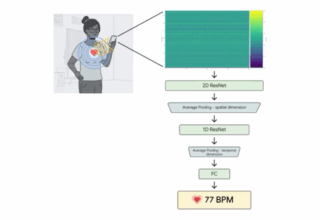 Teenagers who take healthy diets look and feel good. Their bodies need energy and nutrients to grow and work properly. A healthy diet means eating a collection of foods that give the body the right number of calories depending on how active the teenager is. Avoid fad diets which most teenager fall for and take an advice from a nutritionist or a doctor.
Teenagers who take healthy diets look and feel good. Their bodies need energy and nutrients to grow and work properly. A healthy diet means eating a collection of foods that give the body the right number of calories depending on how active the teenager is. Avoid fad diets which most teenager fall for and take an advice from a nutritionist or a doctor.
Get Started
1. Don’t skip the breakfast. Skipping meals does not help to lose weight but contributes to poor health because the body misses out the essential nutrients. Research has shown that taking breakfast helps to control the weight. A healthy meal is very important for a balanced diet because it provides minerals and vitamins necessary to face the day. Take whole meal grain with a slice of fruit.
2. Eat fruits and vegetables. They are sources of the vitamins and many nutrients the body needs. Take at least five portions of a variety of vegetables and fruits each day. Either fresh or dried these, these foods count a lot. Take smoothies and vegetables baked in your favorite dish or stew.
3. Manage the snacks. Replace foods that have lots of saturated fats and sugar with healthier snacks. Pies, processed meat like bacon and sausages are high in saturated fat and pastries or cakes have lots of sugar. If teenagers eat these foods frequently, they are likely to become overweight because they have high sugar and saturated fat concentration.
4. Drink enough fluids. Teenagers waste a lot of water because they stay active throughout the day. They should aim to drink at least 6 to 8 glasses of fluids every day. Water, milk and unsweetened fruit juices are healthy options.
5. Check the iron intake. As the teenagers grow, they lose lots of iron in the process of growing. Girls especially are at a higher risk of losing iron because of their monthly periods. Include red meat, cereals with iron and beans. People with iron deficiency always feel tired and run down or their bodies don’t grow properly in time.
6. Eat the fibers. Teenagers that keep feeling hungry should take more fibers in their meals such as beans, yams, whole meal bread and vegetables. Fibers take long to digest and make you feel full the entire day. They also help the metabolism process.
7. Seek advice. If eating makes you guilty or anxious or worried about your weight because of the food you take, ask your parent or guardian to use their European Health Card and find dietitians or health specialists who can help. Some people have eating disorder and need help early enough before they reach adulthood and it gets out of hand.
8. Underweight teenagers should eat enough and overweight may be eating too much. Limiting certain foods or having unbalanced diet contributes to low calories and nutrients that the body needs. Underweight people easily get health problems. Gain weight in a healthy way. Your doctor can help on this. Eating a lot is not the issue, the issue is, if you are eating foods high in fat and sugar you gain weight. Eating well does not mean you are a diet freak – it helps you consume junk food occasionally but stay healthy along your growth as a teenager.
[ Source :- Oca-online ]
















